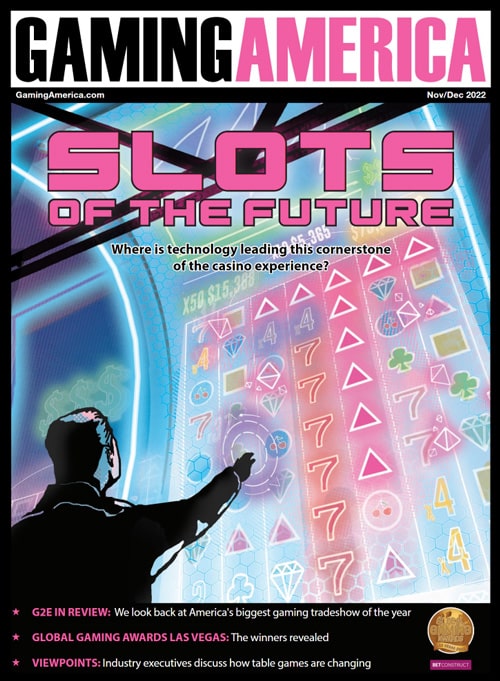
Five years ago, sports betting was almost entirely outlawed in North America. Over the past few years, the number of states that have legalized sports betting has exponentially grown, and the market is now estimated to reach $10bn by 2028 in the US.
A staple in American sporting culture, the NFL brings competitiveness, community and, for the most dedicated of fans, high stakes. However, it’s not just a crucial time for supporters, but for sports betting operators that have an opportunity to capture a wider target audience, scale marketing campaigns and drive up the number of depositing customers.
However, sports betting operators are up against substantial gambling tax and customer acquisition costs. In comparison to countries like the UK which does not tax winnings, the tax rate on betting earnings ranges from 2-3% to over 50% from state to state. Customers need much more convincing from sportsbooks to bet, especially if they know half their winnings will disappear the moment they win.
Across the US, sportsbooks are scaling their marketing to match. The idea that the sports betting industry is a niche entertainment market confined to one location is long gone, and with no federal advertising rules specific to the sports betting industry, digital marketing campaigns are being scaled to increase margins and the user base. The problem is that this pits sportsbooks up against several unique challenges in the form of invalid and fraudulent traffic.
A Shifting Landscape
Online sports betting is on the rise. By 2025, US online sports betting revenue will reach an estimated $5bn, significantly more than land-based sports betting revenue at $1.5bn. Where previously an individual would approach a counter, bet and pay and then leave, operating online opens the door to more incentives to drive bets, including boosted odds and free bets.
However, by introducing an incentive, sports betting companies open themselves up to the presence of bots. These bots are automated to redeem the promotions and act like human engagement – but never actually convert into depositing customers. Incentives are a fantastic way to drive new users to your site, but with the invalid click rate ranging between 20-37% in this industry (far higher than the average across other sectors) you’re losing significant amounts of marketing budget to useless traffic.
The Challenge for Apps
This shift from offline to online betting methods will also increase the number of sports betting operators encouraging on-the-go betting within an app. It’s a lucrative market: in under six months from its legalization, New York State generated $302m in tax revenue from mobile sports betting.
Attribution fraud and SDK spoofing performed by some bad actors in the mobile advertising ecosystem are a big threat to revenue and marketing data. Actions like clicks and installs that are misattributed, meaning associated with
the wrong source or channel, completely disrupt the marketing data you use to make decisions on what strategies to scale up and which should receive less investment.
INFLUENCER MARKETING
Affiliate marketing is rising in popularity among sportsbooks because it creates an opportunity to reach an already established target audience and, when done right, delivers a sizable return on investment.
The largest sports betting operators may have thousands of affiliate partners on their books, each earning a commission when a pre-agreed action is performed by the target audience, such as redeeming a free bet. With a bounty on offer, there’s a huge incentive for affiliate partners and influencers to ignore or perpetrate fraud, all while you’re unsuspectingly paying out.
BLIGHT OF BOTS
Bots are filling up sales budgets, taking marketing budgets and wasting money that is invested in trying to push them further down the sales funnel when it’s impossible they will ever convert to depositing customers. During a period
when more people are betting than normal, digital marketing budgets are growing and more states are legalizing betting, these combined losses stop sports betting operators from giving themselves the best chance of growing their market share. Sports betting operators shouldn’t limit their marketing strategy to mitigate bots or implement hard-line strategies that discount genuine traffic. Nor should they be panicked.
The first step is as simple as just widening the visibility operators have into what invalid traffic is, how it affects the industry, and which of its marketing methods are impacted most by bots. It’s important operators take advantage of the lack of awareness on the issue within the industry, and put themselves ahead of the curve by then taking the steps to implement a technology solution that meets their needs. A clearer understanding and better insight into how sports betting companies can protect themselves will result in significant savings and a much stronger conversion rate to depositing customers.
THRIVING IN A BOT-FREE MARKET
The sports betting industry in the US generated a revenue of $4.33bn in 2021, a significant rise from the $1.55bn generated over the previous year, and that number is expected to continue to grow as more states launch legal sportsbooks. Sports betting companies are vying for a place in a crowded market with limited targeting, and relying on free bets, boosted odds and attractive promotions to stand out.
Bots and bad actors stand in the way. However, with a greater understanding of the challenge, and by identifying and partnering with a solution provider that can stop bots before they can take advantage of marketing incentives, one can save budgets and reinvest it into making companies stand out. As more sports betting companies rapidly emerge across North America and sporting season gets underway, this competitive edge becomes a great asset.

